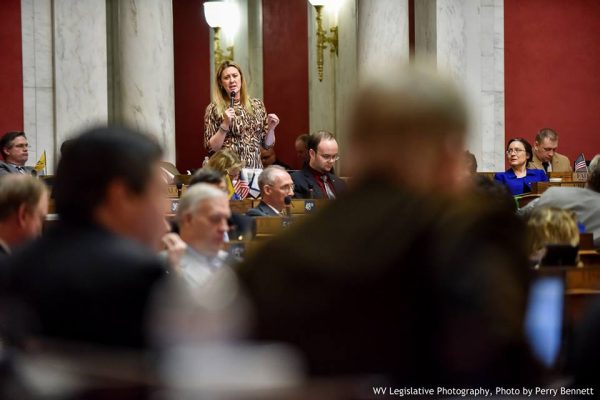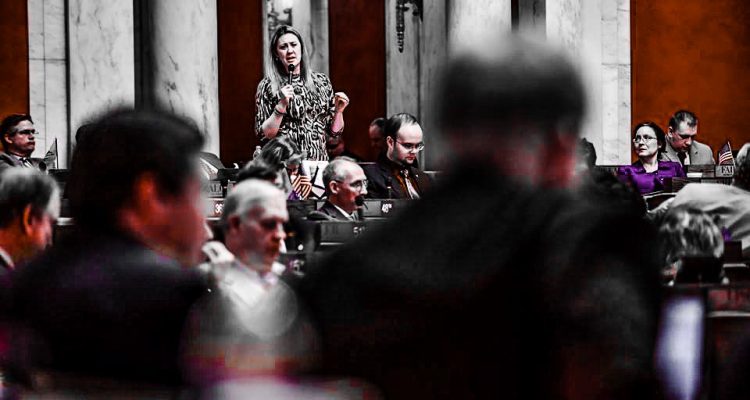They most definitely disagree with each other on occasion.
But do Erikka Storch and Shawn Fluharty debate because she is a Republican and he is a Democrat? Is it because Fluharty is a criminal defense attorney and Storch is the president of the Wheeling Area Chamber of Commerce? Does it have anything to do with the difference in their ages or with the fact one is married and a parent of three, and the other is single with no children?
Or is it a male-female thing?
No. No. No. No. And certainly not.
The disagreements, instead, are rooted in their beliefs concerning what is best for the residents within the Third House District and for the citizens of West Virginia.
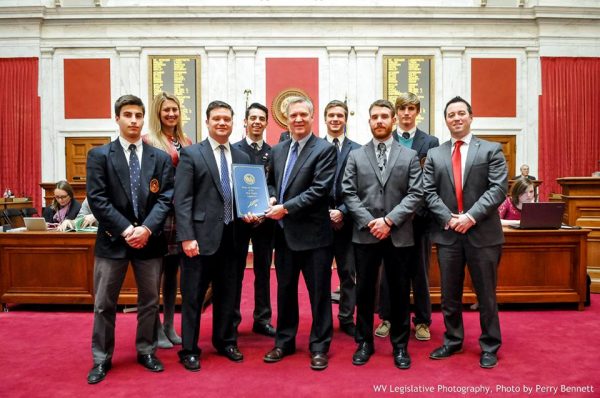
Storch and Fluharty, though, did not disagree very often. The most pronounced difference of opinion between the two came during the final week of the recent regular session of the West Virginia Legislature, when Storch voted with the Democrats and Fluharty with the Republicans on the bill that would have repealed the Mountain State’s concealed weapon permit law. The bill won approval in both chambers, but Gov. Earl Ray Tomblin vetoed it, citing citizen opinion.
But the two District Three lawmakers both voted against legislation that would have permitted forced pooling on the state’s property owners. Forced pooling allows the gas and oil companies to drill horizontally and frack land not under contract so the industries can extract as much as possible. Fluharty entered his initial session dead-set against the proposal, and Storch went against the GOP-pushed proposal.
Why? Because she, too, lives in the middle of IT – a region of the 35th State that is getting poked with hole after hole as the country’s efforts to become energy independent continue and seem centered along Interstate 70.
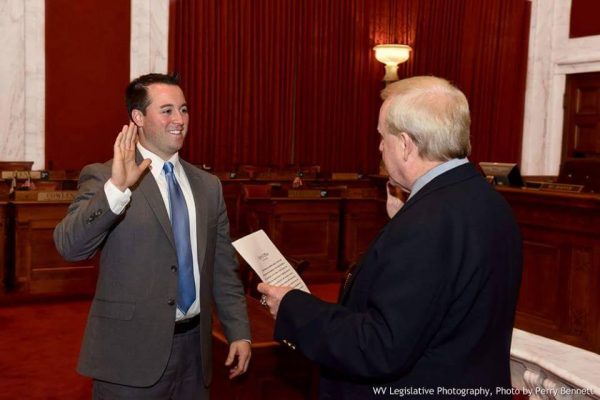
Fluharty was quoted often by Charleston media members for speaking out against what he refers to an agenda pushed by out-of-state interests, and Storch chaired a pair of committees (Interstate Cooperation and Political Subdivisions) for the first time in her political career. The freshman, who lost twice for the position before winning in November, defended organized labor despite the fact the unions pulled their official endorsement of him this time around. The veteran, who has never lost an election since first campaigning in 2010 and was the leading vote-getter in the Third District race, dispelled rumors that she is considering retiring from public service.
And both of them returned to their Friendly City homes frustrated with the process and, for the most part, with the results, but they plan to continue staging bi-partisan Town-Hall-style gatherings in order to supplement their education about what their neighbors need and how they feel about the district’s most pressing issues.
Novotney: Del. Storch, please explain the regular session that you experienced as a member of the majority in the House of Delegates.
Storch: The session was very busy, and I found it to be very frustrating. I also found it to be partisan. Very partisan, and that was very frustrating for me. I have a lot of friends on both sides of the aisle, and I lost some respect for some people this year based on their behavior.
I had never chaired committees before, and I chaired two, so I needed to get used to my new roles in those positions. I thought we moved a lot of issues, and we worked longer and later early in the session than we have in the past, but that was also frustrating because there weren’t timely notices about the schedule.
And I felt there was a lot of showmanship this session, and that was also frustrating to me because of how it will all be portrayed by the media and what the people will recognize. A lot of people will not dig past the sound bites or the headlines to find out what really happened.
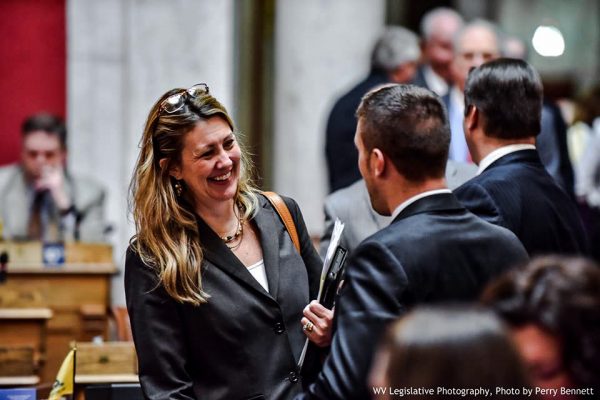
Novotney: Del. Fluharty, what was your impression of your first regular session as a West Virginia lawmaker?
Fluharty: I found it to be controlled chaos. That’s how I would describe it.
I think the frustrating part for me was finding out the influence that outside interests have on our state. I think a lot of the legislation that came through, particularly early on, I don’t believe was being pushed in the interest of West Virginia. I really feel those issues were pushed by outside interests.
An example of that, in my opinion, was the prevailing wage bill. I have had numerous people from Ohio County emailing me asking, “What’s going on down there? No one wants this.” It appeared to me that nobody wanted it, but yet it was still pushed down our throats. I felt like it was a reflection of what goes on down in Charleston, and that the interests of outside lobbyists were very poignant this time around. It may have been like that before, but I felt that with the new regime coming in that there was a set agenda they had to push regardless of whether or not it was wanted.
I sat on the Judiciary Committee, and we were extremely busy. It was frustrating there, too, because of the bills many were trying to push through. We were there before the session and then again after the session, and some nights we worked pretty late. We also met on the weekend.
I just felt it was more about quantity over quality, and bills were going through without being properly vetted, and that was bothersome to me.
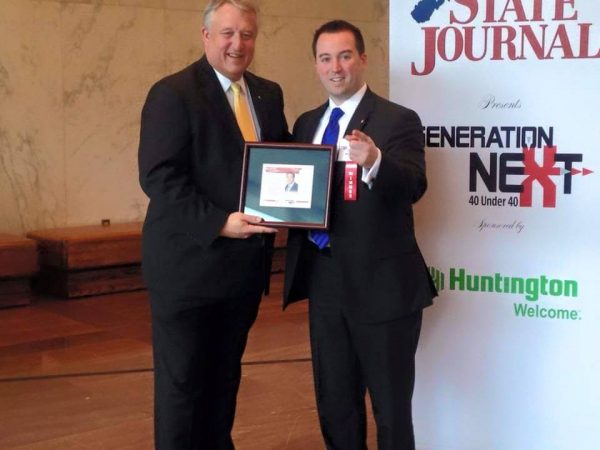
Novotney: Del. Fluharty, you were a freshman Democrat, and for the first time in decades the Democrats were not the majority party. What kind of position did that place you in heading into the regular session?
Fluharty: I think the best part about the position I was in was that I didn’t owe anyone. If you look at the records and take a look at the contributions I received, there weren’t many of them, so I went down there without anyone controlling me. I found that advantageous in the sense that I could go a little more on the attack and be more vocal.
I enjoyed having the opportunity to speak my mind without having to worry about some special interest group having concerns. In my position, I didn’t have anyone in my so-called camp. I was just me, in Charleston, doing my best to represent the people of the Third House District. I was vocal because I believe the people of Ohio County wanted me to be vocal.
I welcomed that. I welcomed that freedom. Most of the lawmakers had that problem.
Storch: The greatest compliment that I receive is when someone tells me they believe that I truly care about the people in our district because I really do care no matter what the situation is as far as majority and minority party.
With that said, the partisan thing this session really bothered me. Returning Democrats took on a completely different role, and in some ways they behaved differently. Shawn came down with fresh eyes, so he was able to be his own person, but some may have harbored some ill will because they were used to being in the majority for all those years.
There are definitely some more right-leaning Republicans that had an agenda, and that made it tough, too. I know it will never be this way, but I often wish we could just be elected and do our jobs instead of having all the divisions to deal with and caring so much about whose party is in control.
And what’s very irritating to me is that I have never had a bill that I was the lead-sponsor on go all the way. I have never had legislation completed and signed, and it’s not from a lack of effort on my part. This year was another example. I had legislation progress part of the way, but those bills didn’t make it all the way, and that’s something I plan to bring up with leadership. Only a third of Republican bills moved. Our leadership ran a lot of Democratic-sponsored bills and did not run a lot of our bills.
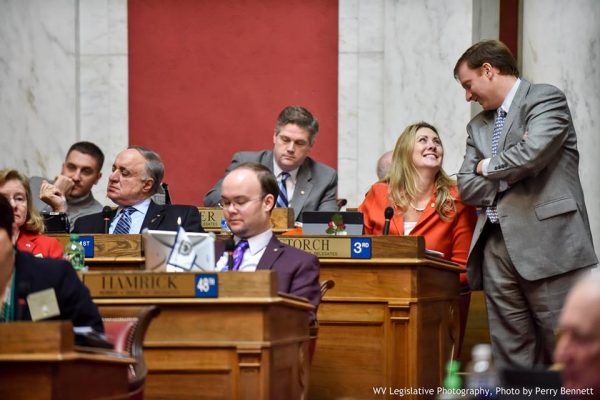
Novotney: Was revenge a part of the Republican agenda during the regular session, Del. Storch?
Storch: No.
Like I said, our leadership ran more of the Democrats’ bills than they did Republican bills.
Novotney: Del. Fluharty, did you get the impression that revenge was on the GOP agenda?
Fluharty: Not revenge, no. I think what we saw was a directed agenda. Look at the vast majority of the bills that went through early. They were all about tort reform, but as I knocked on all those doors in our district, I didn’t hear one person mention anything about tort reform, and no one complained about the state’s judicial system.
That made me wonder who directed that part of the agenda. That’s why I don’t think revenge was on the agenda, but instead I think the agenda was one of “IOUs.” There were things that had to be there and pushed because some had to do something for particular groups, and that was bothersome to me.
Novotney: Despite the fact that you two are members of different parties, your votes on the issues were very similar during the regular session. Is that a reflection of the two of you working together to best represent the people of the Third House District?
Storch: I think if you look at the majority of the bills, there were a lot of good ideas, and it’s easy for us to support good ideas. I think Shawn and I were on the same page with the needs on the district. Maybe we talked with different people in the district, and maybe that where our disparities came into play, but for the most part we were on the same page because we come from here and also because we did discuss a lot of things during those 60 days.
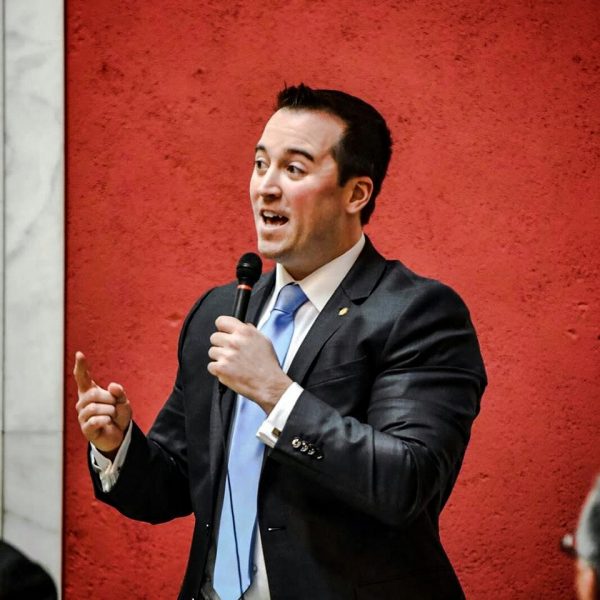
Fluharty: Both of us know our district and the people in it, and we put that first and foremost. You saw us voting together on a lot of bills, and that’s why, and we also communicated very well during the session. I think it’s important for our constituents to know that, too, because then they will know that we didn’t go down to Charleston for our party and only our party. That’s not how we operated; that’s for sure.
The district came first. Sure, there are issues that we disagreed on, but those were few and far between.
Novotney: Del. Fluharty, before the regular session you were determined to go to Charleston and propose an increase to the severance tax on gas and oil extraction in West Virginia, but that idea hit a wall very soon after the session began.
Fluharty: I made an amendment on the House floor that would have done just that. That’s what you have to do as a member of the minority party. For me to just propose a bill to do that would have been useless because I knew it wouldn’t move.
The amendment I proposed was close, but in the end it did hit a wall. What it would have done was raise the severance tax by 1 percent. I thought it was completely fair, and it would have put $30 million into our secondary roads. Every county in the state would have benefited.
Novotney: Del. Storch, was increasing the severance tax on the gas and oil industries a no-go from the very beginning of the session?
Storch: I do believe there was a lack of interest in increasing the severance tax. Republicans typically do not want to raise taxes. What I tried to do was redirect a part of the severance tax the industries are paying for our roads, but that didn’t go anywhere either.

Novotney: As a freshman lawmaker, what did you learn from Del. Storch during our first regular session?
Fluharty: To be patient.
As we have told you, there was a lot of frustration involved, and I knew not to plan on everything working out the way I wanted them to for our district.
Erikka advised me to be patient and to sit back, observe, learn, and not try to change the world right away because you’re not going to. That is what I took from it.
Novotney: Del. Storch, what did you think of the performance of Del. Fluharty?
Storch: I would give Shawn props on how he went about the session.
I had the opportunity to come in under Larry Border, who was affectionately referred to as the “den mother” of the House when I was a freshman. He took our freshman class under his wing and mentored us. He did that for members of both parties, and it was completely a non-partisan process.
And Larry not only cared about the lawmaker, but he also cared about the person. I can remember something he said to my husband. He said, “Erikka is going to be coming back home, and you’re going to have to work her back into the family structure after making most of the parental decisions during the regular session.”
Why I told you that was to make the point that he wasn’t concerned with only what was connected to the legislative process. He cared about the person, and I continue to appreciate that today.
I thought Shawn was very good at taking the points that were very important to him and expressing himself about those points. I think people listened to those points carefully because he wasn’t one of those people who gets up on the floor and talks every day. I think Shawn would agree with me that there were several people from both sides of the aisle who did that every single day.
That was not Shawn. Shawn picked the things that were in his heart because he truly believed in them, and that’s when he spoke. He didn’t make a point to be up on the floor every day. He did very, very well, in my opinion.
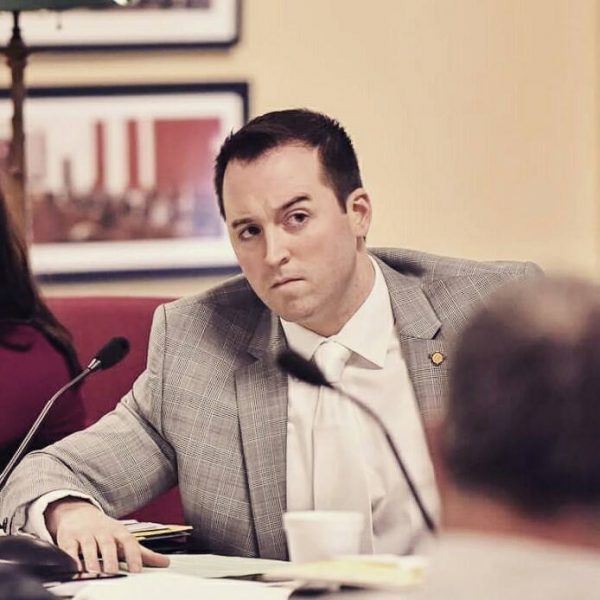
Novotney: In your opinions, was the regular session a session for the people, or was it a session for something else?
Storch: There were some things that were good for the people in the five different regions of our state, but I think we lost some things that could have been good. I think, for the most part, it was a session for the people.
Fluharty: This is one of the things Erikka and I disagree on.
If corporations are really people, then it was a regular session for the people. But I still do not agree that corporations are people.
There were small victories for the people. Forced pooling failing in the House was a victory for the people, in my opinion, and I was very proud that both she and I voted against forced pooling.
We had the storage tank bill that regressed what was worked on last year after 300,000 went without water for longer than a month. So who was that for? Not the people.
We had the prevailing wage bill, and who was that for at the end of the day?
We had the coal mine safety act, and all that did in my opinion was regress the progression we have had through the years with coal mine safety. That helps the Don Blankenships of the world, and that doesn’t help the guys underground.
Overall, I didn’t feel the session really represented the average West Virginians who get up every day and work hard so they can provide for their families. I don’t think their voice was represented well during the session.
